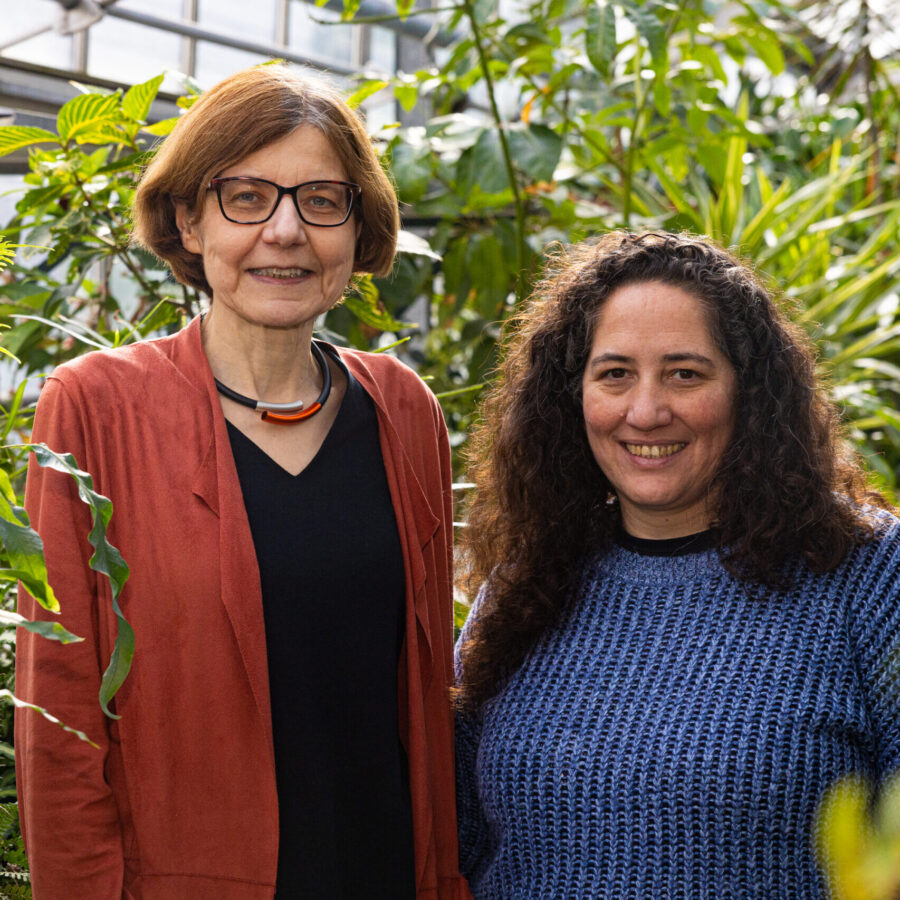Plants are impacted by a wide range of environmental factors: high and low temperatures; light and shade conditions; drought and salinity. ‘If there is an adverse change in conditions, plants cannot look simply for a new location,’ says biotechnologist Dr Julieta Mateos from the Faculty of Biology at Bielefeld University. Plants need to respond to such challenges by regulating gene expression, a process in which information encoded in the genes is converted into proteins.
Working with an international team of researchers, the scientist explored how these changes occur, which proteins play a role, and the specific effects of different environmental conditions. The study has now been published in ‘The Plant Cell’. For the study, biologists from Bielefeld teamed up with colleagues from IFIBYNE, the Institute of Physiology, Molecular Biology and Neuroscience in Buenos Aires, Argentina. The project was funded by the German Research Foundation (DFG) and the Argentine Ministry of Science, Technology and Productive Innovation.

© Bielefeld University/Mike-Dennis Müller
Alternative splicing as a strategy
For their experiments, the researchers used Arabidopsis plants, thale cress, which is related to crop plants including rapeseed, broccoli, and cauliflower. ‘Previous studies have shown that in Arabidopsis plants a specific protein, a protein methyltransferase, alters other proteins by chemical modification,’ says Julieta Mateos. One of these modified proteins, LSM4, caught the researchers’ attention.
It plays a role in how genetic information is processed in cells, especially in a process that is known as alternative splicing of RNA. This involves removing some sections of RNA and reassembling the remaining ones. This means that a single gene can code for different proteins. ‘In order to better understand how this process is regulated, we studied LSM4 in Arabidopsis more closely.’ Research shows that there are often errors in the way plants regulate alternative splicing when the LSM4 protein is modified.
Flexible response to environmental factors
‘Our findings surprised us,’ says the researcher. Because if a plant grows under favourable conditions, the modification of LSM4 hardly plays a role. ‘However, it does come into play when the plant suddenly comes under stress.’ It is also interesting to note that the plant’s response is highly specific to the different types of stress. In the event of a bacterial infection, the LSM4 protein is chemically modified to a lesser extent by the protein methyltransferase, and this helps the plants to strengthen their defences. Conversely, a high soil salinity leads to a strong modification of the protein so that the plant can respond more effectively to this environmental stress.
‘Our discoveries show how flexibly plants respond to different types of stress and adapt gene expression at the level of alternative splicing so that they can survive,’ says the scientist. ‘Our next step is to look at how these changes help plants to adapt quickly to their environment. Understanding these complex interactions could give us important clues about the mechanisms that plants use to do this.’
Arabidopsis plants have around 25,000 to 30,000 genes. ‘With this limited number, alternative splicing is a very effective mechanism for producing very different proteins with multiple functions in the cell,’ says biochemist Professor Dr Dorothee Staiger from Bielefeld University’s Faculty of Biology. She is head of RNA Biology and Molecular Physiology and co-author of the study.
Significance with regard to climate change
These studies are also important in the light of climate change. Rising temperatures, which are already being observed, are subjecting many plants to stress. In addition, salinity levels are on the rise in many soils due to declining precipitation. ‘If we better understand the mechanisms by which plants respond to such environmental stresses, we might eventually be able to develop plants that are more resilient to particular stresses or combinations thereof,’ says Dorothee Staiger. There are various conceivable methods for this, based on the CRISP/Cas genetic scissors.
‘This could be a very effective way to better adapt plants to climate change,’ says the researcher. These modifications could be achieved comparatively quickly. ‘If plants had to adapt naturally, it would take several thousand years.’ These findings could therefore help to effectively make plants more resistant in the future in order to ensure their survival.




